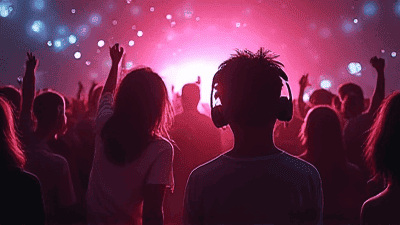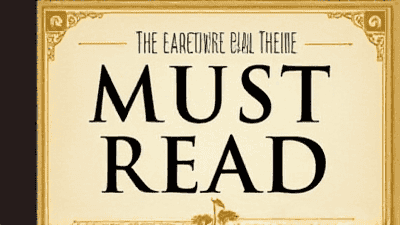
The Secret Libraries of Famous Authors You Never Knew Existed
The concept of a "secret library" might conjure images of hidden rooms and arcane texts, yet it primarily refers to the intimate, often unexamined, private book collections of renowned authors. These personal literary sanctuaries, distinct from public archives, represent a crucial, yet frequently overlooked, dimension of a writer's intellectual landscape. While the published works of literary giants are widely celebrated, the hidden worlds of books they consulted, annotated, and cherished remain largely unexplored, offering profound insights into the genesis of their creative genius.
These private libraries are far more than mere aggregations of books; they are meticulously curated intellectual ecosystems reflecting the author's mind, influences, and evolving creative processes. Their importance to literary scholarship, biography, and cultural history cannot be overstated, revealing forgotten inspirations, unexpected passions, and the intricate intellectual cross-pollination that shaped seminal works. In an era where digital humanities are revolutionizing research, understanding these collections is key to resolving debates about authorial intent and literary legacy, and to appreciating the true depth of an artist's formative experiences. What impact would it have on our understanding or practice of literary scholarship if we failed to fully comprehend the intellectual ecosystems nurtured within these private literary sanctuaries?
Unveiling Literary Sanctuaries

More Than Books: The Author's Mind Reflected
A "secret library" is not necessarily physically concealed, but its curated contents and the intimate nature of its use are often private, distinct from public knowledge. It serves as an author's personal archive of influence, a direct reflection of their intellectual DNA. Authors meticulously gather books, journals, and even ephemera that shape their worldview, provide essential research, and spark their imagination. This profound curation process is frequently subconscious, driven by an insatiable intellectual curiosity that molds their unique literary voice. For instance, Virginia Woolf's Hogarth House collection was not merely a repository of her own published works, but a carefully selected array of literature, philosophy, and history that fueled her modernist experiments. Her deep engagement with Greek classics and sociological texts like those by Émile Durkheim (a French sociologist whose work explored social cohesion) profoundly informed her innovative narrative structures and complex character developments. Research into authors' marginalia—the notes written in the margins of their books—often reveals active intellectual engagement, critical thought, and direct connections to their own creative writings. A highlighted passage in Ralph Waldo Emerson's personal copy of Montaigne (a French philosopher renowned for his introspective essays) might directly inspire a central tenet in "Self-Reliance," illustrating how personal reading directly feeds literary output. Think of these libraries as a writer's intellectual laboratory, where diverse ideas are mixed, tested, and refined before emerging as published works. A reconstructed probable reading list for William Shakespeare, derived from textual allusions within his plays, indicates a vast engagement with classical history, Ovid's Metamorphoses, and Holinshed's Chronicles (a primary source for his historical plays), underscoring how deeply literary influences can permeate a writer's entire oeuvre.
Mapping Influences: Catalysts of Creation
From Marginalia to Masterpiece: Decoding Literary Pedigrees
The "literary pedigree" of an author's work often traces directly back to specific texts and intellectual currents found within their personal library, revealing both overt and subtle influences. Authors engage with these books through active reading, meticulous annotation, and the deep internalization of ideas, which then manifest in their unique narratives, stylistic choices, or profound philosophical stances. This process is not a form of plagiarism but rather a dynamic, intellectual dialogue across different eras and authors. Consider Jorge Luis Borges, celebrated for his intricate, labyrinthine stories and essays. His personal library, famously vast and wonderfully eclectic, was absolutely central to his prolific creative output. He possessed works ranging from ancient mythology to obscure philosophical treatises, many of which he cited and ingeniously reimagined in his fiction. For example, Borges's stories frequently feature libraries themselves as central metaphors for the universe and the boundless nature of human knowledge, themes directly stemming from his profound bibliophilia.
The table below illustrates how specific categories of books frequently appear in the private collections of influential authors and the corresponding, often profound, impact these readings had on their body of work. This demonstrates a direct correlation between an author's personal reading habits and the distinct characteristics of their literary output.
| Author Type | Common Library Categories | Impact on Work |
|---|---|---|
| Modernist Novelists | Classical Literature, Philosophy, Psychology | Experimental narrative, stream of consciousness |
| Science Fiction Writers | Scientific Texts, Futures Studies, Mythology | World-building, speculative societal structures |
| Post-Structuralist Thinkers | Linguistics, Anthropology, Literary Theory | Deconstruction of narratives, intertextuality |
Modernist novelists, such as James Joyce, often engaged deeply with classical epics and psychological texts by influential figures like Sigmund Freud, which significantly contributed to their revolutionary narrative techniques and explorations of inner consciousness. Science fiction authors, from Jules Verne to William Gibson, frequently immersed themselves in cutting-edge scientific advancements and future predictions, profoundly shaping their imaginative worlds and speculative narratives. Similarly, post-structuralist thinkers meticulously studied linguistics and anthropological theories to underpin their critiques of language, power structures, and the very nature of storytelling. This table clearly underscores how a carefully curated library serves as both a rich source of knowledge and an essential laboratory for intellectual synthesis and artistic innovation. Beyond traditional methods, digital humanities projects are now leveraging artificial intelligence to cross-reference authorial texts with known library holdings and digitized marginalia, uncovering previously unnoticed influences. For instance, AI can identify common vocabulary or thematic echoes between an author's novel and a specific philosophical text from their collection, providing unparalleled insights.
The Enduring Legacy

Preserving Private Worlds for Future Insights
The "enduring legacy" of these secret libraries lies not just in their historical value, but in their continued ability to provide fresh, dynamic insights into authorship and literary history long after the author's passing. Preserving these collections is far more than mere physical safekeeping; it is about maintaining a comprehensive contextual understanding of an author's entire intellectual journey. Each book, each subtle annotation, acts as an invaluable artifact in a larger intellectual excavation, offering direct evidence of the creative process. A prime example is Ernest Hemingway's library in Cuba, Finca Vigía, which has been preserved largely intact. It contains thousands of books, many with his handwritten notes, providing a direct window into his meticulous research for novels like "For Whom the Bell Tolls" and revealing his broader interests in history, natural science, and bullfighting. The detailed annotations in his copies of war histories (e.g., relating to the Spanish Civil War) clearly provided the raw material and contextual depth for his immersive fiction. Scholars utilizing these meticulously preserved libraries can gain critical insights into compositional processes, revision stages, and the subtle evolution of an author's thought. The ability to consult the exact edition an author read, complete with their specific marks and comments, is invaluable for textual criticism and ensuring biographical accuracy. Imagine being able to walk through the mind of a genius, not merely through their finished works, but through the very raw materials they consumed and processed, gaining an intimate understanding of their intellectual landscape. University archives and specialized literary institutions increasingly recognize the profound value of acquiring and meticulously cataloging authors' personal libraries, often alongside their manuscripts. This holistic approach ensures a richer, more nuanced understanding of their entire creative output.
Conclusion
The exploration of authors' secret libraries reveals them as far more than simple collections of books; they are, in fact, intellectual crucibles where influences are absorbed, creative processes ignited, and the author's inner world vividly reflected. Our journey through these personal literary sanctuaries has underscored their unparalleled capacity to provide direct access to the intellectual DNA of literary masterpieces. From Virginia Woolf's modernist experiments, demonstrably fueled by her deep engagement with philosophy and classical literature, to Jorge Luis Borges's labyrinthine fictions, meticulously constructed upon an encyclopedic and eclectic reading regimen, these hidden collections offer insights that traditional textual analysis often overlooks. Understanding these private worlds is not merely supplementary but fundamental to literary scholarship, biography, and cultural history, bridging the often-impenetrable gap between inspiration and creation. These libraries stand as a powerful testament to the enduring, transformative power of reading, affirming that every truly great writer is, at their core, a great reader. They are silent collaborators, whispering influences across generations, meticulously shaping the very fabric of our literary heritage. They compellingly invite us to reconsider the origins of genius, not as a spontaneous combustion, but as a carefully cultivated garden of ideas, tended with passion and intellectual rigor.
The future of studying authors' secret libraries is poised for exciting advancements, driven by increasing digital accessibility and genuinely interdisciplinary approaches. Potential breakthroughs include leveraging artificial intelligence and machine learning within digital humanities projects to uncover subtle textual influences and intellectual networks that were previously undetectable. These technologies can analyze vast corpora of marginalia and cross-reference them with published works, revealing new connections. Furthermore, virtual reality could soon allow scholars and the general public alike to "walk through" and intimately explore these meticulously preserved physical spaces remotely, transcending geographical barriers. However, significant challenges remain, including securing consistent funding for preservation efforts, navigating complex ethical considerations regarding intellectual property, and ensuring broad, equitable access to these invaluable resources. Macro scientific policies and robust philanthropic initiatives will be crucial for the continued acquisition, preservation, and digitization of these collections. Moreover, fostering interdisciplinary integration—bringing together literary scholars, historians, computer scientists, and librarians—will be absolutely key to unlocking the full potential of these archives, moving beyond traditional textual analysis to embrace complex data modeling and innovative interpretive frameworks. Investing in advanced digital infrastructure and comprehensive training for future generations of scholars is paramount. We must cultivate a deep appreciation for the material culture of reading as much as for the texts themselves. The journey into these secret libraries is an ongoing endeavor, promising an endless stream of discoveries that will continually reshape and enrich our understanding of literature and the extraordinary minds behind it, ensuring their profound and enduring legacy for generations to come.








